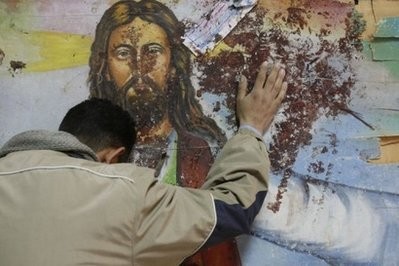CAIRO: Some political parties backtracked after signing an agreement with the military council stating that Egypt’s rulers will reconsider ending the state of emergency and applying a political exclusion law to ban members of the former regime from contesting elections.
"Let’s disregard the statement we agreed upon on Saturday and consider our meeting Sunday a review and a correction of what came in the agreement," leading member of the Freedom and Justice Party (FJP) and former MP, Mohamed El-Beltagi told Daily News Egypt.
The Democratic Alliance — a coalition of 34 political parties — held a meeting on Sunday evening to discuss their stance towards the Saturday meeting with SCAF and whether they will boycott elections.
El-Beltagi said that boycotting elections was off the table for now, after SCAF responded to some of the alliance’s demands.
"However we are still holding on to the rest of our demands and call on SCAF to implement them as soon as possible," he said.
These demands include ending the state of emergency, and implementing a political exclusion law that would strip remnants of the former regime of their right to participate in the political arena for 10 years.
Last week, the alliance threatened to boycott the November parliamentary elections if its key demands weren’t met by Sunday.
The Supreme Council of the Armed Forces (SCAF) agreed to amend Article 5 to allow the candidacy of political party members to the seats allotted to the individual candidates system (one third of the 498 seats in the lower house).
There were many proposals regarding the political exclusion law, with some suggesting its enforcement for two years and others demanding its implementation for five or 10 years.
There was also debate over who exactly would be excluded by the law, whether it would apply to former ruling National Democratic Party (NDP) MPs elected in 2010 or extended to include those elected in 2005.
"These were all proposals, nothing has been decided yet," El-Beltagi said.
SCAF is expected to announce a final decision regarding these two demands within a maximum of one week.
One point of contention among political powers, especially Islamist groups, was the issue of accepting a non-binding set of constitutional principles and guidelines for electing the constituent assembly that will draft the new constitution.
"We will only abide by the advisory charter issued by the Democratic Alliance around four months ago," El-Beltagi said.
He added that according to the charter drafted by the alliance, the only guideline for electing the constituent assembly is that it represents a broad spectrum of political and social affiliations.
The document was intended as an advisory charter that would help the constituent assembly while drafting the constitution.
Al-Noor Party, Salafi ultra conservative group, went further than El-Beltagi, saying it refused the very notion of a code of honor or imposing any guidelines on the constituent assembly.
"Party members had several reservations on the statement after it was signed including many points that were vague and unclear," spokesperson of Al-Noor party Youssry Hamad told DNE, referring to the vague references to the emergency law and political exclusion law.
Mostafa El-Naggar, founding member of Al-Adl Party, said in a note on his Facebook page that SCAF said that the charter would be binding to the parties who agree to sign it.
However, Ahmed Saeid, member of the Free Egyptians’ Party’s presidential council, said there was no such thing as a binding charter or supra-constitutional principles.
"It’s merely a charter that we will all agree to follow and abide by," he said.
Al-Noor also condemned the lengthy transition period set out by SCAF, demanding that the People’s Assembly form a government to "steer the country towards real development" in the meantime.
SCAF heeded to the pressure of political powers to allow the People’s Assembly to convene after it is elected in January 2012. Both houses would meet in late March or early April to choose the 100-member constituent assembly, responsible for drafting the constitution within six months.
The new constitution would be approved by a referendum within 15 days of its completion, after which presidential hopefuls can submit their candidate applications, one day following the approval of the constitution in a public referendum.
FJP leader, Mohamed Morsi, said that the constituent assembly can be elected within one month and can draft the constitution within three months, allowing presidential elections to be held in August 2012.
However, other parties feared that the process might take longer pushing presidential elections to early 2013.
Al-Adl party also rejected the statement, and El-Naggar retracted his signature on the statement on his Twitter account saying that it would be up to the party’s executive bureau to make the final decision.
"I only signed because I [believed] that it was in the best interest of the country," he said.
On its part, Al-Wasat Party refused the invitation to attend the meeting altogether.
"We were concerned that this meeting would lead to amending Article 5 of the parliament law only, which is exactly what happened," Tarek A-Malt, spokesman of Al-Wasat said.
"This meeting exposed them as powers that only seek limited political interests, disregarding the rest of the peoples’ demands," he added.
On the other hand, Saeid described the meeting as "very positive," saying that it achieved many gains for the political parties and the Egyptian people.
"SCAF agreed to end military trials for civilians which was a huge achievement and agreed to allow international and local observers," he said, explaining however that they will not be allowed to officially monitor the elections.
"International and local observers can follow up and observe the procedures to document any violations without intervening," he explained, adding that he believed "this was for the best."
The meeting was attended by only about a dozen of Egypt’s nearly 50 political parties, who all signed the statement.

